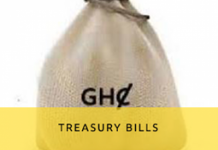I read with deep regret and concern the response by the Central Bank—BoG denying the claim that Ghana is becoming a dual currency state. Unfortunately, the central bank’s response failed to address the substantive issues raised in my article.
Point 1: Coercing Ghanaians to use only MTN MoMo
MTN’s practice of restricting consumers to using only MTN Mobile Money (MoMo), specifically the “Yellow Currency,” as the sole means to access its services while neglecting other forms of e-money in the ecosystem should be a significant concern for the central bank.
As clearly stated in my article, the only method available today to purchase an MTN Turbonet bundle is through the MoMo Wallet—Yellow Currency. This monopolistic practice raises several critical issues that need urgent attention from BOG and regulators.
Point 2: Exploiting Significant Market Power (SMP)
Firstly, the exclusivity of MTN’s Mobile Money as the only means to access its services undermines the principles of fair competition and inclusivity in the digital financial ecosystem. In a healthy and competitive market, consumers should have the freedom to CHOOSE FROM VARIOUS PAYMENT OPTIONS, including other mobile money platforms, bank transfers, and other digital currencies. By restricting access to only the Yellow Currency, MTN is stifling competition and limiting consumer choice and convenience.
Point 3: Defeating interoperability efforts;
MTN’s decision of compelling subscribers to use MTN mobile money as the only means for some services carried out under the guise of a “self-recharge Drive,” disregards the diversity of e-money options available in the country and interoperability when it comes to buying turbonet for instance. It marginalises those who prefer or rely on alternative e-money solutions. Such a move can lead to a monopolistic environment where MTN holds disproportionate power and influence over the mobile financial ecosystem.
Point 4: Yellow Money is competing with Cedis, not complementing it.
Moreover, this practice poses a subtle yet significant threat to the Ghanaian Cedi. MTN is creating a parallel currency system by encouraging the exclusive use of Yellow Currency within its ecosystem. This transformation of MTN’s ecosystem into a mini-economy with its own currency undermines the role and value of the national currency. Over time, this could erode trust in the Cedi and destabilise the broader financial system. National currencies are a cornerstone of a country’s economic sovereignty, and any action that undermines their stability should be scrutinized and addressed promptly.
Digitization is meant to foster innovation, efficiency, and fair competition. It should not be used as a tool to create monopolies that threaten national currencies and economic stability. The rise of mobile money and digital currencies should contribute to a more inclusive and competitive financial landscape, where multiple players can coexist and compete on a level playing field.
In light of these concerns, the central bank’s response is inadequate. The substantive issues raised in my article have not been addressed, and the potential threats posed by MTN’s practices remain unmitigated. The central bank and regulators must take a more proactive stance in regulating and overseeing the mobile money ecosystem to ensure that it promotes fair competition, consumer choice, and the stability of the national currency.
I urge the central bank to revisit its response and take the necessary steps to address the concerns highlighted. It is crucial to safeguard the integrity of the Ghanaian financial system and ensure that digitisation benefits all stakeholders equally without creating monopolies or undermining the national currency.
Bismark Brown
Broadcast Journalist
Global Media Alliance
























































![[FREE FREE MONEY] Predict and Win a Guaranteed GH¢200 From Us EVERY WEEK](https://wordpress.ghanatalksradio.com/wp-content/uploads/2022/02/Predict-and-Win-Final-09-03-2021-218x150.jpg)
![[Predict & Win – 8th/Oct.] WIN A Guaranteed ¢200 From Us This Week](https://wordpress.ghanatalksradio.com/wp-content/uploads/2021/10/maxresdefault-16-218x150.jpg)
![[Predict & Win – 2nd] WIN A Guaranteed ¢200 From Us This Week](https://wordpress.ghanatalksradio.com/wp-content/uploads/2021/09/maxresdefault-50-218x150.jpg)
![[Predict & Win – 25th] WIN A Guaranteed ¢200 From Us This Week](https://wordpress.ghanatalksradio.com/wp-content/uploads/2021/09/maxresdefault-36-218x150.jpg)
![[Predict & Win – 18th] WIN A Guaranteed ¢200 From Us This Week](https://wordpress.ghanatalksradio.com/wp-content/uploads/2021/09/maxresdefault-23-218x150.jpg)








![[National cathedral] See full list of churches that have contributed since 2018](https://wordpress.ghanatalksradio.com/wp-content/uploads/2020/09/Ghana-National-Cathedral-GhanaTalksRadio-100x70.jpg)



